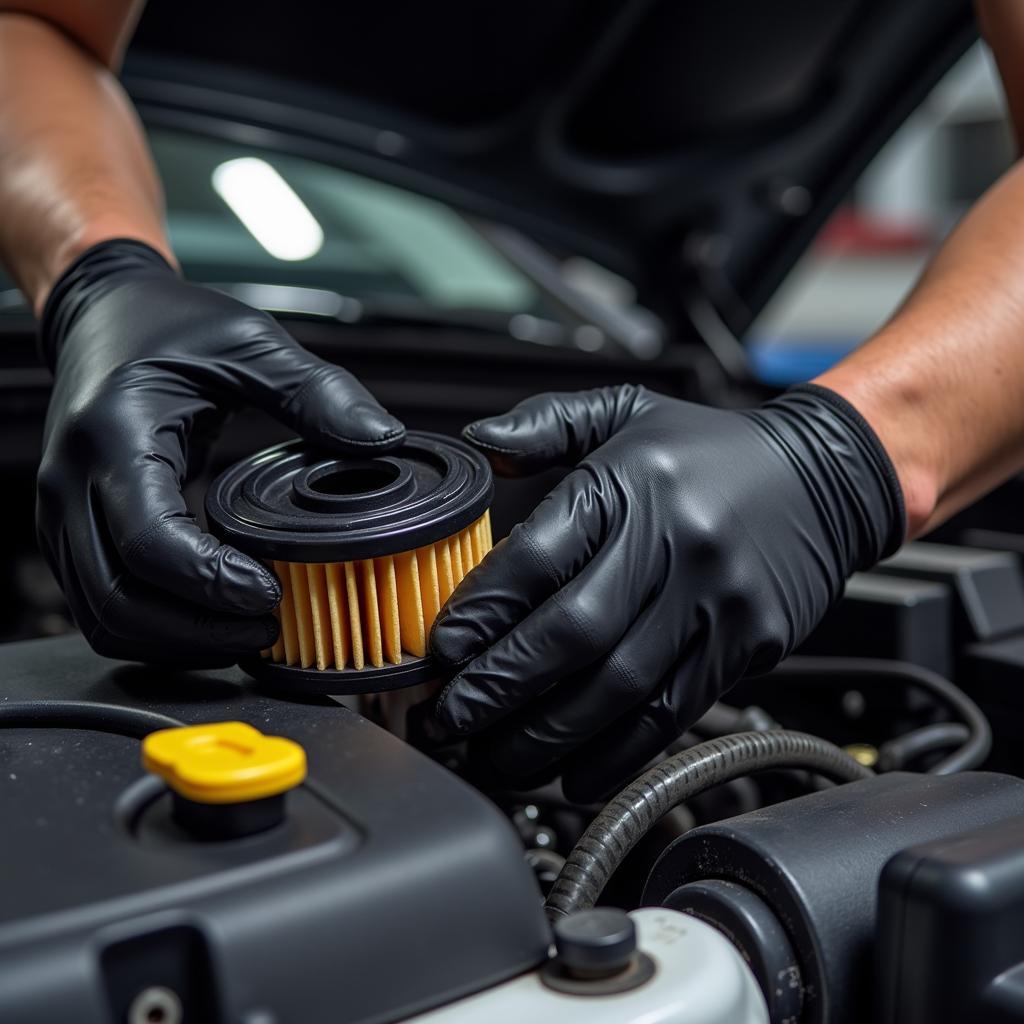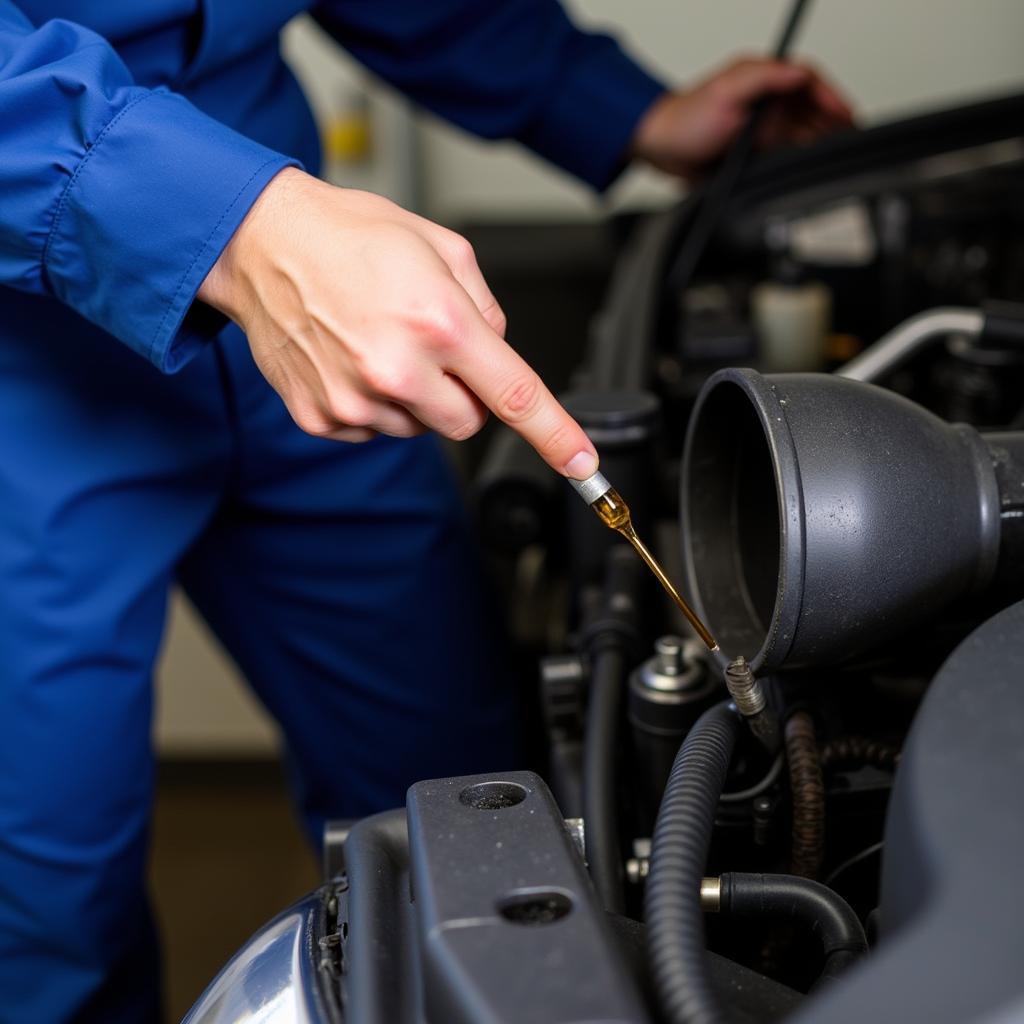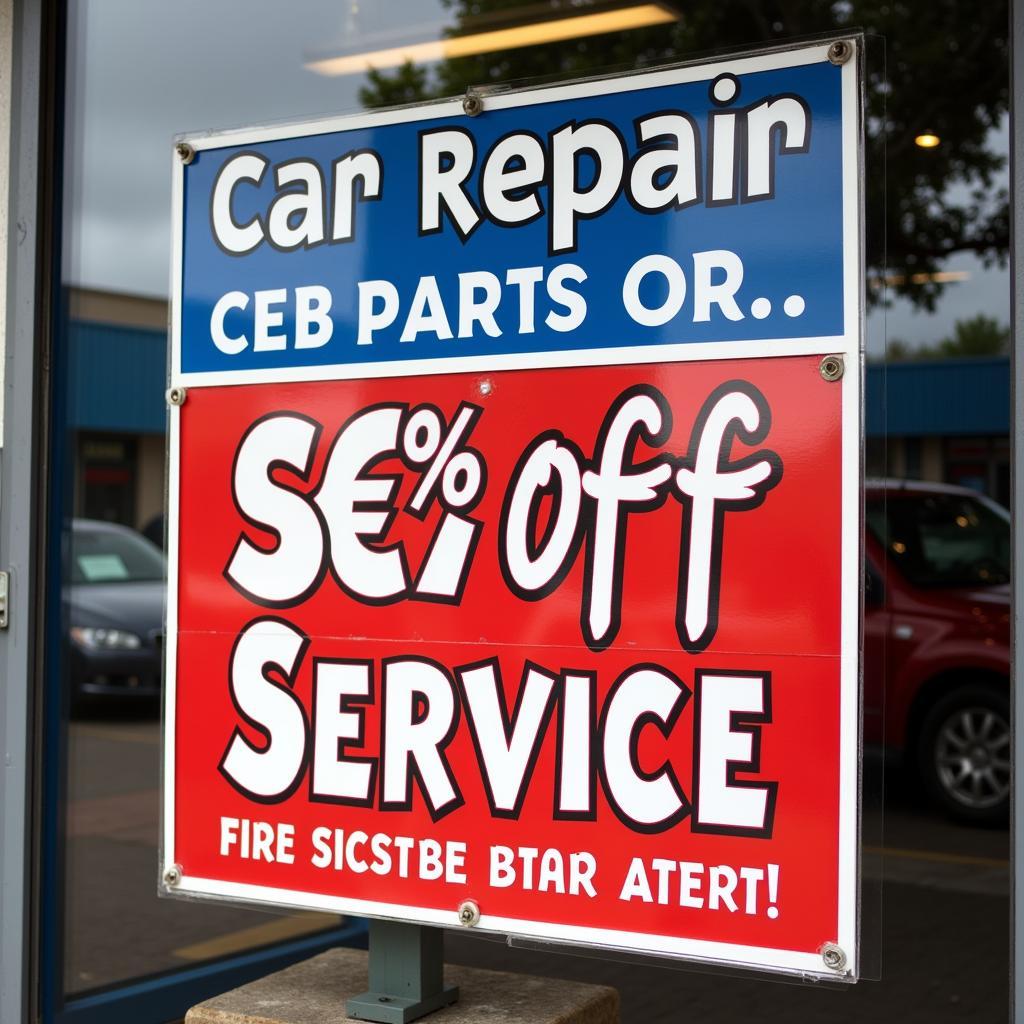What Includes Preventative Care Services for Your Car?
Preventative car maintenance often feels like an extra expense, but trust me, it’s the key to keeping your car running smoothly for years to come and avoiding costly repairs down the road. So, What Includes Preventative Care Services, and why are they so important? Let’s dive in.
Understanding Preventative Car Care
Think of preventative car care like taking vitamins for your car. Just like vitamins boost your immune system and prevent illness, regular maintenance keeps your car healthy and prevents major breakdowns. It’s about addressing small issues before they turn into big, expensive headaches.
The Essential Components of Preventative Car Services
Preventative care services encompass a range of checks and procedures that target different aspects of your car’s health. Here’s a breakdown of the essentials:
1. Oil and Filter Changes: The Lifeblood of Your Engine
Regular oil changes are non-negotiable. Oil lubricates your engine’s moving parts, reducing friction and preventing wear and tear. Over time, oil degrades and loses its effectiveness.
 Car engine oil change essentials
Car engine oil change essentials
2. Fluid Checks and Top-offs: Keeping Things Flowing
Your car relies on various fluids beyond engine oil. These fluids, including coolant, brake fluid, transmission fluid, and power steering fluid, need to be at the correct levels and in good condition for your car to function correctly.
 Mechanic checking car fluids
Mechanic checking car fluids
3. Tire Care: More Than Just Air Pressure
Your tires are your car’s only point of contact with the road, making their maintenance critical for safety and performance. Preventative tire care includes:
- Pressure Checks: Maintaining the recommended tire pressure ensures optimal performance, fuel efficiency, and tire lifespan.
- Rotation: Regularly rotating your tires ensures even wear and tear, extending their life.
- Alignment: Proper wheel alignment prevents uneven tire wear, improves handling, and enhances fuel economy.
4. Brake Inspections: Your Safety Net
Your brakes are arguably the most critical safety system in your car. Preventative brake inspections typically involve:
- Inspecting brake pads and rotors: Worn brake pads or rotors reduce braking efficiency and can lead to costly repairs if ignored.
- Checking brake fluid levels and condition: Brake fluid is hygroscopic, meaning it absorbs moisture over time, which can compromise braking performance.
5. Filters: Keeping it Clean
Your car uses various filters to keep contaminants out of vital systems. Preventative care includes:
- Air Filter: A clean air filter ensures optimal airflow to the engine, improving performance and fuel economy.
- Cabin Air Filter: This often-overlooked filter cleans the air entering your car’s cabin, improving air quality and reducing allergens.
6. Belts and Hoses: The Unsung Heroes
Belts and hoses might seem insignificant, but they play a crucial role in your engine’s operation. Preventative maintenance includes inspecting these components for:
- Cracks: Cracks in belts or hoses can lead to failure, causing engine damage.
- Wear and Tear: Worn belts and hoses can slip or break, affecting the functioning of components like the alternator, power steering, and water pump.
The Benefits of Preventative Car Care
Investing in preventative car services might seem like an added expense, but the benefits far outweigh the costs.
- Increased Lifespan: Regular maintenance can significantly extend the life of your vehicle.
- Improved Safety: Preventative care ensures that all safety-critical systems are in optimal condition, giving you peace of mind on the road.
- Enhanced Performance: A well-maintained car performs better, offering smoother handling, improved fuel efficiency, and a more enjoyable driving experience.
- Cost Savings: Addressing minor issues early can prevent them from escalating into major, expensive repairs down the line.
Preventative Maintenance: A Smart Investment
Regular preventative care services are an investment in your car’s health, your safety, and your wallet. By addressing minor issues early on, you can avoid costly repairs and keep your car running smoothly for years to come.
FAQs About Preventative Car Care
1. How Often Should I Get an Oil Change?
The frequency of oil changes varies depending on your car model and driving habits. Consult your owner’s manual for specific recommendations.
2. How Do I Know if My Tires Need Rotating?
If you notice uneven tire wear or your car pulls to one side while driving, it’s a good indication that your tires need rotation.
3. What are Some Signs of Brake Problems?
Squealing or grinding noises when braking, a vibrating brake pedal, or the car pulling to one side when braking are signs of potential brake issues.
4. How Often Should I Check My Car’s Fluids?
It’s a good practice to check your car’s fluids at least once a month.
5. How Can I Find a Reliable Mechanic for Preventative Car Services?
Look for certified mechanics, ask for recommendations from friends and family, and check online reviews.
Need Help with Preventative Car Maintenance?
Contact us via WhatsApp: +1(641)206-8880 or Email: [email protected]. Our team of experts is available 24/7 to assist you with all your car service needs.

